Iran To Air Saintly TV Series On IRGC's Qasem Soleimani
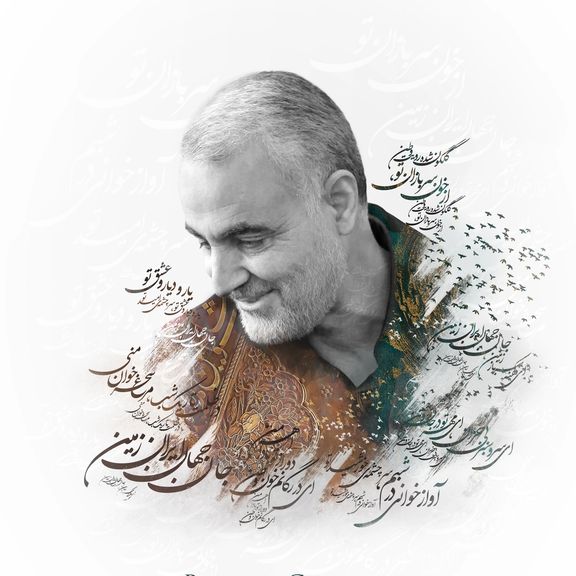
Iranian state television is to broadcast a series on the life of former IRGC Quds Force Commander Qasem Soleimani, portraying him as an almost saintly figure.

Iranian state television is to broadcast a series on the life of former IRGC Quds Force Commander Qasem Soleimani, portraying him as an almost saintly figure.
The series takes an unconventional route by abstaining from assigning an actor to play Soleimani's role, the first instance where an ordinary person is set to be portrayed in a manner reminiscent of a holy figure, much like revered and saintly figures including Shia Imams and Prophet Muhammad.
Mojtaba Amini, the series producer stated, "No one will assume the role of Soleimani. In numerous films we've produced, we crafted various heroes whom the audience embraced, liked, and followed. However, in productions like 'Terror', the audience is already acquainted with the hero."
Qasem Soleimani was killed in a US drone strike near Baghdad International Airport on January 3, 2020, under the directive of then-President Donald Trump.
Soleimani held a pivotal role in Iran's external military and intelligence operations, overseeing support for militant proxy forces, including Hezbollah and Iraqi Shiite militias engaged in hostilities against US forces in the region.
Following Soleimani's death, an Iranian Revolutionary Guard member faced charges of orchestrating a plot to assassinate John Bolton, the former US National Security Advisor, as a reprisal for the IRGC commander's killing. Former Secretary of State Mike Pompeo was also identified as a potential target within the same conspiracy.
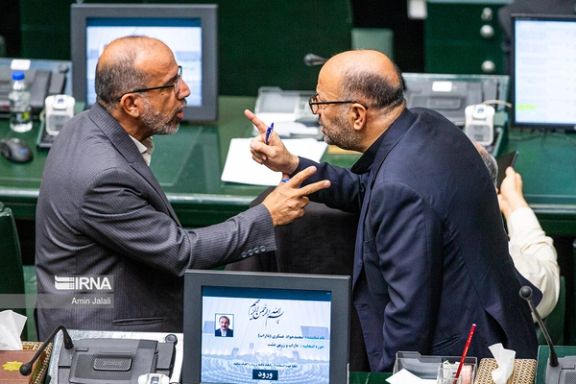
As conservatives are expected to dominate in the March parliamentary elections in Iran, smaller hardline groups are emerging in the run to secure seats in the Majles.
With the absence of reformist and moderate groups from the electoral competition due to disqualifications by the Interior Ministry and anticipated vetting by the Guardian Council, the conservative factions are seemingly unconcerned about the potential implications, notably the prospect of low voter turnout on the election day, March 1. In fact, there are reports that ultraconservatives would even welcome a mere 5-percent turnout.
Competition in the elections is taking place in the apparent absence of reformist and moderate groups that have been effectively barred from running for the Majles as most of their well-known candidates have been disqualified by the Interior ministry and other are expected to be barred by the hardliner-dominated Guardian Council.
The conservatives, however, do not appear to be bothered by the implications of rejecting other groups, most notably, a low turnout on the election day, March 1. Former reformist lawmaker Mostafa Kavakebian has quoted an incumbent conservative MP as having said that the ultraconservatives will be even happy with a 5-percent turnout.
However, the conservative factions are seemingly unconcerned about the potential implications of barring others, notably the prospect of low voter turnout on the election five-percent turnout.
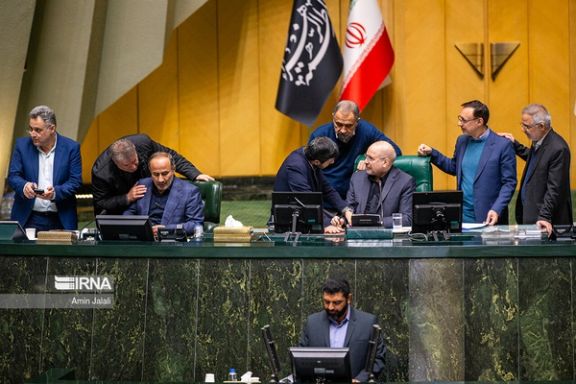
While the ultraconservative Paydari Party, which currently holds sway in the government and parliament, maintains its dominant position, several smaller conservative groups are emerging, hoping to secure a few seats in the Majles to establish their political presence for the next four years.
Recent reports on the conservative landscape before the elections have identified at least seven conservative groups challenging the dominance of the Paydari Party. These groups all bear names suggesting support for the Islamic Revolution, making it difficult for non-Iranian readers to discern their positions. The key figures leading these groups, however, provide better insights into their current political stances.
These figures include vigilante leader Hossein Allahkaram, Housing Minister Mehrdad Bazrpash, Majles Speaker Mohammad Bagher Ghalibaf, controversial hardline cleric Hamid Rasaei, and other lesser-known conservative political figures. While they currently identify as conservatives, their ultimate goal is to secure a share of the limited 290 Majles seats.
Conservative activist Hedayatollah Khademi says the seven conservative groups might be shortlisted to around four groups. He says voters will look at the candidates’ background and will reject many of them even before they go to the polls.
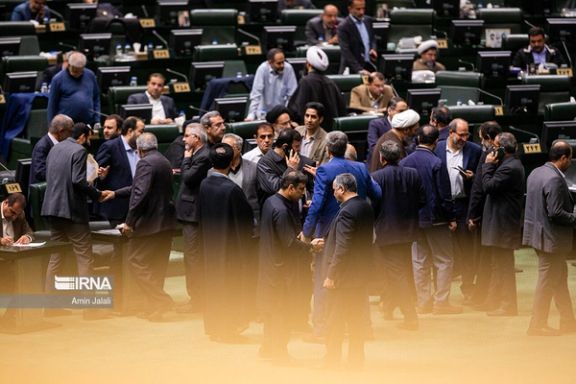
Each one of these groups aims to nominate at least 30 candidates for the 30 seats allocated to Tehran, where most Iranian politicians are based. In contrast, the reform and moderate camp has struggled to present even 30 candidates, as vetting and disqualifications by the Interior Ministry and the Guardian Council have limited their options. Former President Hassan Rouhani is said to be planning to give a list of only 16 candidates form his Moderation and Development Party, and apparently, he is not finding that as easy as he might have thought.
Another conservative analyst, Ahmad Bakhshayesh Ardestani, highlights a curious aspect of this competition. While a political heavyweight like Ghalibaf may secure a seat in the Majles for himself, it is unlikely that he will be able to bring anyone closely associated with him into the next parliament.
Moreover, this competitive landscape among conservatives is likely to result in a significant division within Iran's conservative bloc. Supreme Leader Ali Khamenei, who seeks to diminish the influence of moderates and reformists while maintaining conservative power, appears to welcome this division, as it could hinder the Paydari Party from winning an absolute majority, potentially creating complications for the political system. Khamenei's aim seems to be consolidating power by weakening and dividing conservative factions to ensure his own supremacy.
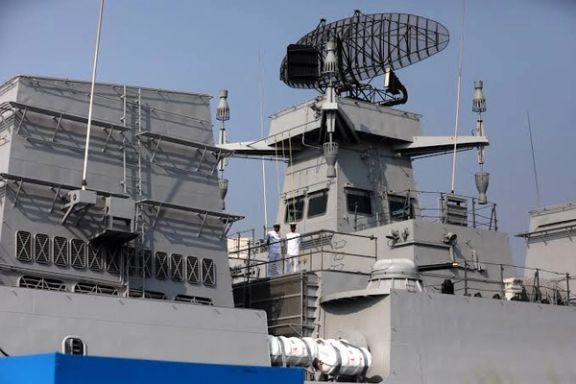
Following a recent drone attack launched from Iran on a merchant vessel off the Indian coast, India's navy will deploy guided missile destroyers in the Arabian Sea.
The deployment has been treated as a proactive measure aimed at "sustaining a deterrent presence." The Pentagon statement Saturday said the Chem Pluto, "a Liberia-flagged, Japanese-owned, and Netherlands-operated chemical tanker" had been targeted by "a one-way attack drone fired from Iran", raising alerts in the region which has become a flashpoint since Iran-backed Houthis announced they would attack all vessels in the Red Sea and surrounding area.
The Yemenis' announcement was made in the wake of the Gaza war, the Iran-backed Yemeni proxy aligning with Hamas in the wake of its war on Israel. Responding to the latest incident so close to its shores, the Indian Navy has deployed guided missile destroyers, including INS Mormugao, INS Kochi, and INS Kolkata.
The MV Chem Pluto, arrived in Mumbai on Monday, prompting an ongoing investigation by the Indian navy. Preliminary findings point to a drone attack on Saturday, and the navy has highlighted the need for further forensic and technical analysis to determine specific details, such as the type and quantity of explosive used.
A collaborative investigation into the attack is currently underway, involving various agencies, subsequent to the comprehensive analysis conducted by the navy's explosive ordnance team. The vessel's crew consisted of 21 Indians and one Vietnamese citizen.
On Monday, Iran's foreign ministry spokesperson refuted the US claim attributing the ship's attack to Iran, dismissing it as "baseless." The US has formed a more than 20-member coalition to protect the Red Sea which is the world's biggest oil passageway in a bid to calm tensions.
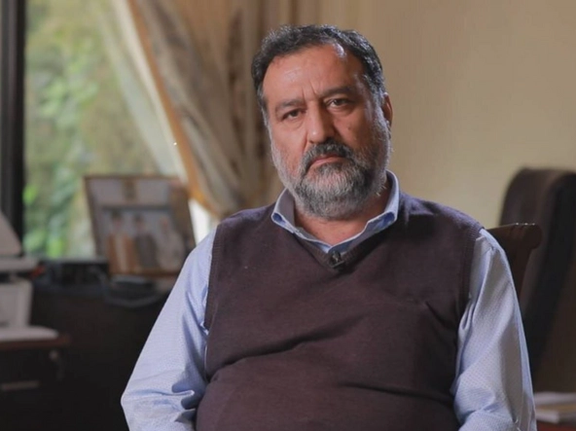
Iran's Defense Ministry spokesperson, Reza Talaei, has vowed revenge for the killing of the most senior IRGC commander since the death of Qassem Suleimani.
Allegedly the target of an Israeli airstrike, Razi Mousavi's death has caused fury in Tehran. Talaei specified that Tel Aviv should anticipate a "smart response," strategically designed to "thwart the Israeli regime's objectives".
President Ebrahim Raisi echoed the sentiment, pledging that “Israel will face the consequences for Mousavi's death.” Foreign Minister Hossein Amir-Abdollahian stressed that Tel Aviv “must brace for a formidable countdown.”
The Israeli airstrike near Damascus on Monday resulted in the death of Mousavi, the senior adviser in Iran's Revolutionary Guards responsible for coordinating the military alliance between Syria and Iran. IDF spokesperson Rear Admiral Daniel Hagari chose not to comment on foreign reports but emphasized Israel's commitment to safeguarding its security interests.
Iran's state television officially announced Mousavi's death, highlighting his association with Soleimani, the head of the Guards' Quds Force, killed by the US in 2020. Iran's ambassador in Damascus, Hossein Akbari, claimed that Mousavi, serving as a diplomat, was killed by Israeli missiles upon returning home from work. Foreign Ministry spokesperson Nasser Kanaani asserted “Iran's right to take necessary measures in response.”
The incident comes in the midst of the Gaza war, in which Iran-backed militias around the region in Syria, Iraq, Yemen and Lebanon, have joined the war on Israel waged by Hamas on October 7.
Israel, known for conducting attacks against entities it deems as Iran-linked targets in Syria, faces heightened tensions as Tehran's influence continues to grow in the region, stemming from its support for President Bashar al-Assad in the Syrian civil war.
Iran has deployed Guards as advisers to train and organize Shiite militia fighters from various countries, including Iraq, Afghanistan, and Pakistan, in support of the Syrian government. Additionally, Hezbollah fighters from Lebanon have closely collaborated with Iranian military commanders in Syria.

US launched air strikes in retaliation for injured soldiers in Iraq, and Iran vowed "revenge" for its top man in Syria killed allegedly by Israel, escalating Mideast tensions.
Monday began with the news of multiple attacks on US forces in Iraq by Iran-backed groups. Then Israelis killed a top IRGC commander in Syria, drawing a harsh response from Iran that Israel “will pay” for it. Then the Pentagon announced airstrikes on Iran-backed forces in Iraq, confirming that an American serviceman had been critically injured in the earlier attacks.
Belligerent statements came aplenty.
“These strikes are intended to… degrade their ability to continue attacks,” said US CENTCOM commander General Michael Erik Kurilla. "These strikes are intended to hold accountable those elements directly responsible for attacks on coalition forces in Iraq and Syria and degrade their ability to continue attacks. We will always protect our forces," he emphasized in a statement.
“The usurper and savage Zionist regime will pay for this crime,” read the IRGC statement on the killing of Razi Mousavi, its top military and intelligence man in Syria. “A line has been crossed,” announced Hezbollah in a typically vague, non-committal response.
Late Monday evening, as the US forces were hitting Iran-affiliated targets in Iraq, dozens of Basiji ‘ultras’ gathered in front of Iran’s National Security Council in Tehran to demand a swift and hard response to the Israeli killing of the IRGC’s commander in Syria.
Razi Mousavi (aka Seyyed Razi) headed IRGC’s ‘logistics’ and military coordination in Syria, which may be better understood as being in charge of getting weapons or money for Iran-backed forces in Syria and Lebanon.
The Iranian state TV interrupted its programs to announce his death, a rare event in cases of other casualties in Syria.
IDF spokesperson Rear Admiral Daniel Hagari said, "I won't comment on foreign reports, these or others in the Middle East," in response to a reporter's question at a nightly press conference. "The Israeli military obviously has a job to protect the security interests of Israel."
Images emerged of him alongside Qasem Soleimani, the former head of the IRGC Quds Force who was killed by a US drone attack in January 2020. The images were there as evidence of Mousavi’s stature and the significance of his loss.
“[Mousavi] was one of the best of brothers who worked to support the Islamic resistance in Lebanon for decades of his honorable life,” said Hezbollah in a statement. “We consider this assassination a blatant and shameless attack. And exceeding the limits.”
Razi Mousavi had been active in Syria for more than 25 years, and had escaped multiple Israeli attempts on his life, according to reports in IRGC-affiliated media.
His death is a clear blow to the IRGC’s operations in Syria and beyond. What is not clear is how the Iranian regime will respond beyond issuing threatening statements.
It may pressure its allied groups (in Yemen, Iraq, and Lebanon) to increase aggression against Israel and the US interests. Or it might strike directly, which would take the current conflict, that began with Hamas rampage of Israel and Israel’s onslaught on Gaza, to a whole new level.
So far, only Yemen's Houthis have officially entered the war in support of Hamas. Hezbollah, by far the strongest non-state actor in the region, has had no more than limited exchanges of fire with Israeli forces across the border. Perhaps most crucially, the Biden administration has tried hard to prevent a full-blown war that would drag its forces into a costly war during an election year.
All that could change if the regime in Iran follows on its words with action.
It did just that when Soleimani was killed. But the Hard Revenge promised to the hardline supporters of Supreme Leader Ali Khamenei, turned out to be a ‘token’ attack on a US base in Iraq, allegedly, after notifying the Americans.
That was a New Year's victory for Trump on January 3 2020. This could be a Christmas headache for Biden.
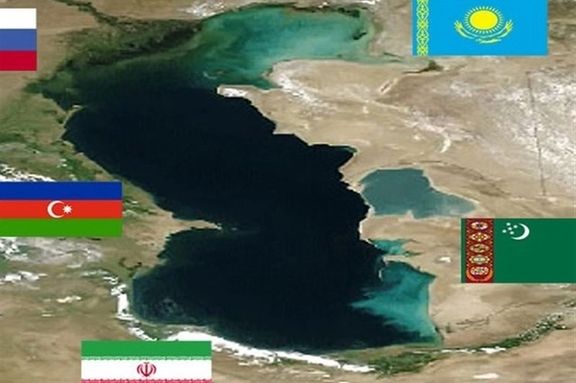
Iran’s minister of interior voiced concerns over the shrinking water level of the Caspian Sea, warning of its decline in coming decades.
Without mentioning the inattention of the regime to ecological issues, Ahmad Vahidi emphasized the importance of sharing global incident experiences to collectively address crises.
“If conditions continue in this manner, the Caspian Sea will dry up in the coming decades, and for this reason, a solution must be considered,” he added.
The decline in the world's largest lake is said to result from significant precipitation and the annual water flow. However, Iran has recently pointed fingers at Russia, particularly highlighting the closure of critical entrances, notably the Volga River, as a contributing factor to the crisis.
In August, Ali Salajegheh, the head of the Iranian Department of Environment, highlighted ecological challenges arising from a one-meter reduction in the Caspian Sea's water level over the past 4-5 years, with an average annual recession of 20 centimeters.
According to the Central Asia-Caucasus Analyst, “This will have significant and serious implications, including a decline of the sea water level, a considerable retreat of the sea and increase of the land and coastal area especially in upstream countries (Russia and Kazakhstan), challenges to the operation of ports and shipping, as well as environmental consequences, particularly the drying of protected areas and wetlands."
It underscores that the Caspian Sea's water level has diminished by one meter in recent years and could potentially plummet by 9 to 18 meters by the conclusion of the 21st century.